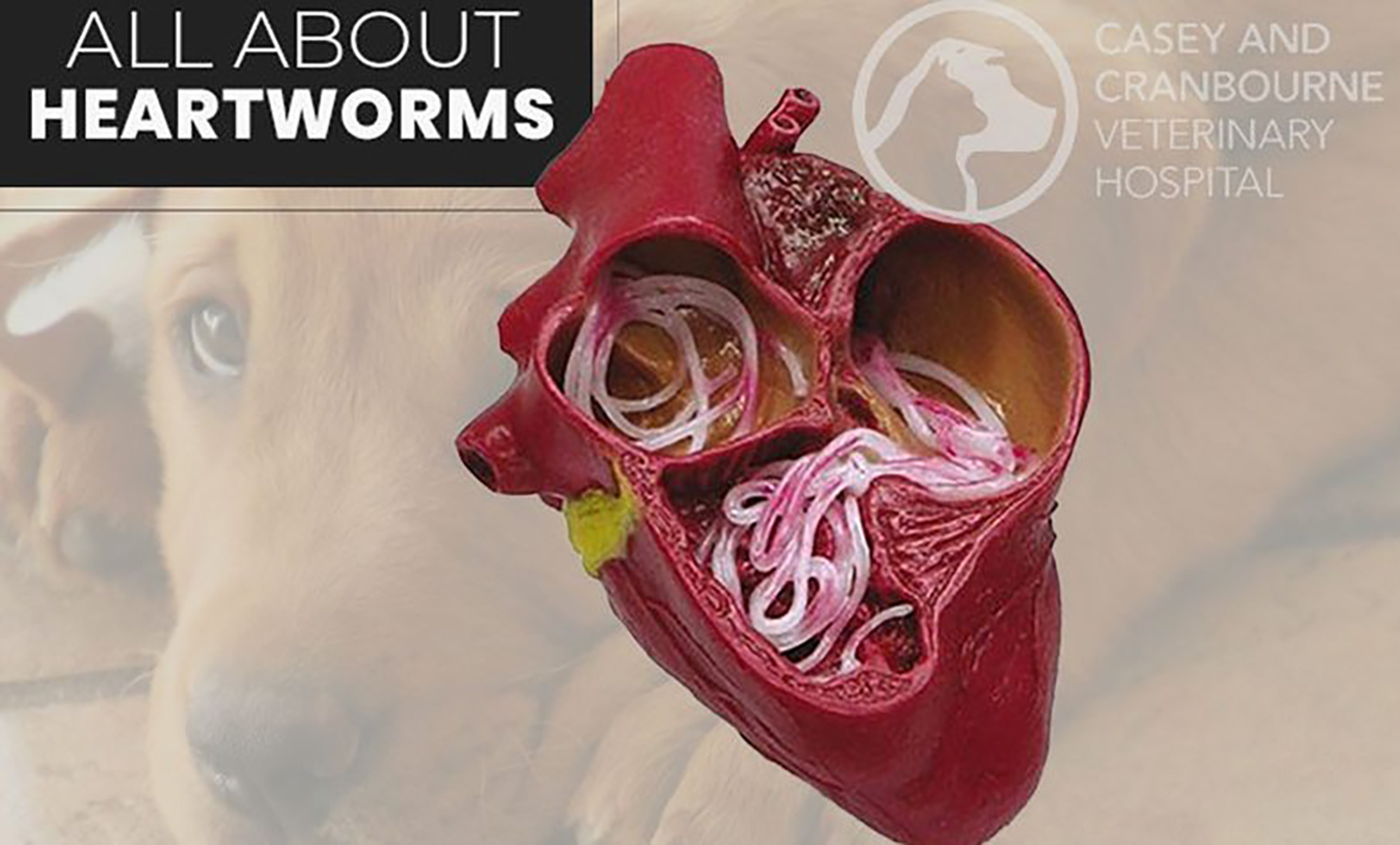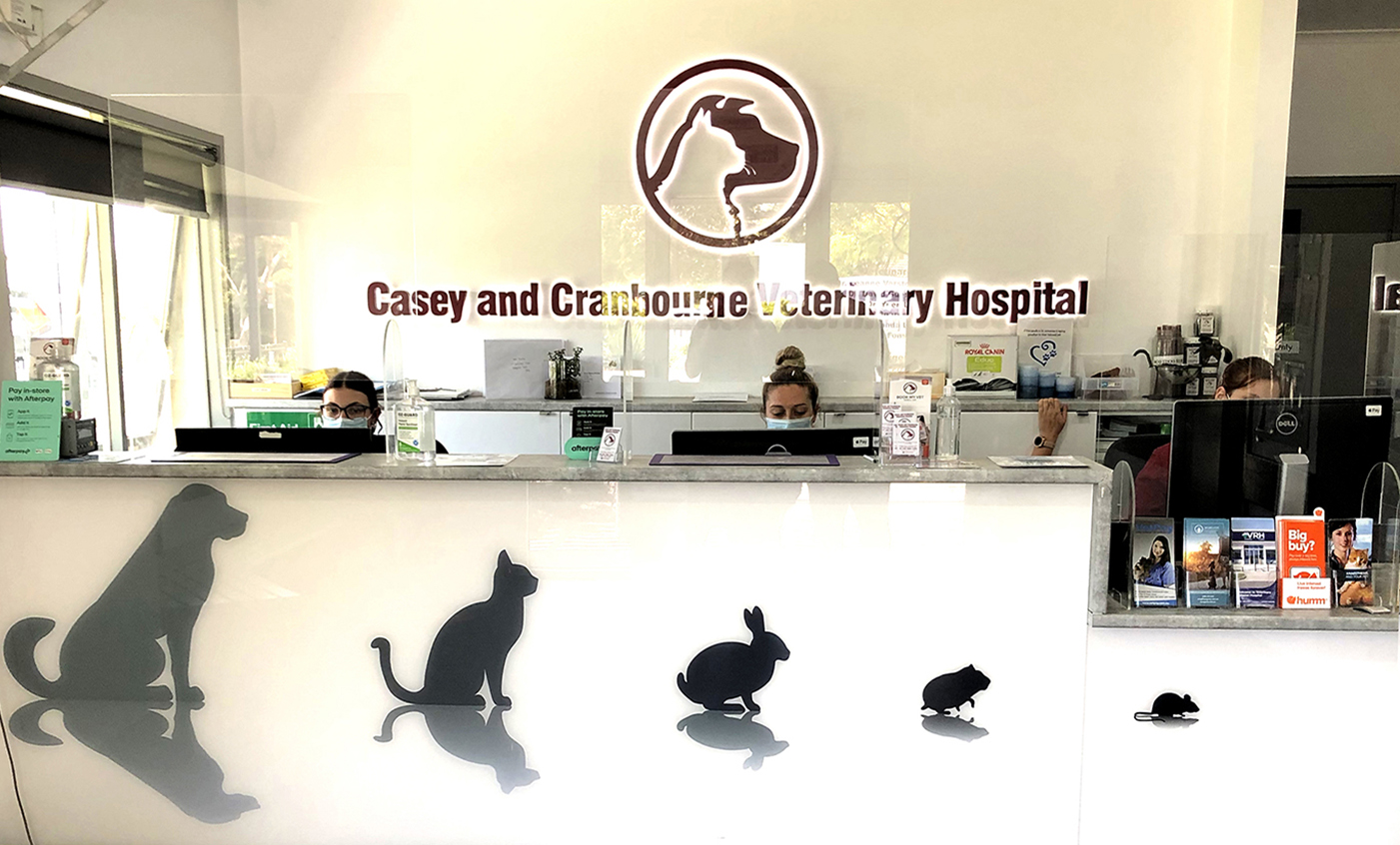ANIMAL VACCINATIONS
Casey and Cranbourne Veterinary Hospital provides routine animal vaccinations for all types of pets, and it’s important that you include these as part of your pet’s regular health check. Many of the diseases that affect dogs, cats, rabbits and other pets have no known cure, so vaccinations offer the only protection against them. Therefore, it’s better to prevent illness with a quick jab, than risk untimely death for your beloved animal.
Animal vaccination myths dispelled
There are many false perceptions when it comes to animal vaccinations, so it’s important to know that all pets – whether indoor or outdoor – are susceptible to illness and disease. They all, therefore, need to be vaccinated.
- Indoor pets can still contract disease: Many diseases can be transmitted via food bowls, water bowls and clothing.
- Dogs that are never put in kennels can still get kennel cough: Dogs can be exposed to kennel cough if an infected dog walks past and is coughing, as it can be carried in airborne droplets. Also, dogs with kennel cough can be contagious for a few weeks after the coughing has stopped, so even seemingly healthy dogs you meet could still be carriers.
What does a vaccination do?
When you get your animal vaccinated, it involves administering a very small dose of the non-infectious part of a disease into the body. This stimulates the body’s immune system, prompting it to produce antibodies and immune cells that will protect your pet if it ever comes into contact with the infectious strain of the disease.
All animals are at risk from disease, particularly young, older and infirm pets, so it’s best to boost their immune system in any way you can.
What common diseases do we protect against?

For puppies and dogs
Our routine vaccination for puppies and dogs is a five-in-one vaccine called Nobivac C5, which protects against the following diseases:
- Parvovirus: This highly contagious virus is spread through dog faeces and causes severe vomiting and bloody diarrhoea in unvaccinated animals, as well as possible brain and heart disease. It requires aggressive, intensive therapy and often a long hospital stay, but can still result in death. A common disease, parvovirus is very resistant to sterilisation and may last in the environment for up to a year.
- Distemper: Spread by infectious airborne droplets, distemper normally starts with a fever, mild cough and nasal discharge. As the disease progresses, however, fits, paralysis and blindness can occur, often resulting in death.
- Infectious canine hepatitis: The result of a virus, this highly contagious disease is similar to severe hepatitis in people and damages the liver. It can also result in widespread organ failure and sepsis. The virus is spread by ingesting the urine, faeces or saliva of infected dogs, and there is no known cure, so is often fatal in unvaccinated dogs.
- Canine cough: Canine cough or kennel cough is highly contagious and is spread by airborne droplets from coughing infected dogs. It can also be contracted through direct contact with infected dogs or fomites. Our vaccinations protect against the three most common causes of canine cough: adenovirus, parainfluenza virus and the Bordetella bacteria. The disease causes severe airway inflammation and a very harsh, hacking cough, which can progress to more severe chest infections.
- Vaccination protocol: All puppies require an initial course of three vaccinations. The first is a C3 (distemper, hepatitis and parvovirus) usually given at six weeks of age when the puppy is still with the breeder. The second and third vaccinations are Nobivac C5 (distemper, hepatitis, parvovirus and canine cough) and are given at 10 and 14 weeks of age and then as adults via an annual vaccination.
Please note: Puppies should not be allowed to walk in public until at least 7 to 10 days after their second vaccination (given at 10 weeks). After this, they can be taken for walks though they should avoid contact with unknown dogs until after their final vaccination.
NB Yearly booster injections throughout your cat or dog’s life will maintain immunity from these conditions. The annual vaccination is also a valuable opportunity for a complete health check and to discuss any concerns you may have about your pet.
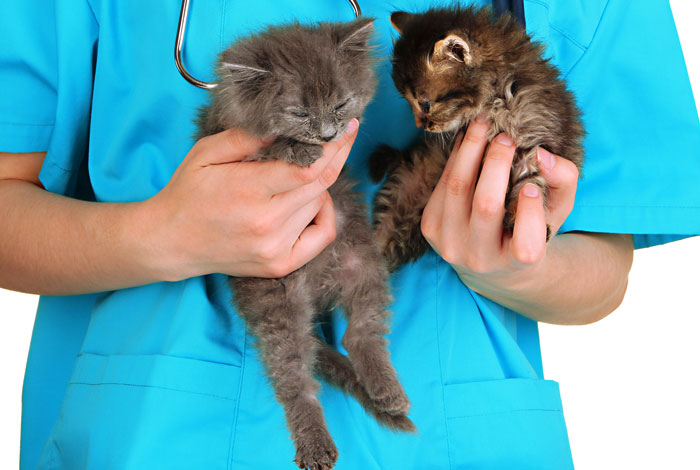
For kittens and cats
At Casey and Cranbourne Veterinary Hospital, we routinely administer the F3 vaccination that protects kittens and cats against feline enteritis and cat flu. For cats who go outside, we also strongly recommend vaccinating against FIV (more details below).
F3 vaccination protects against the following diseases:
- Panleucopaenia (FPL), or feline enteritis: This virus causes severe vomiting and diarrhoea in young cats and is potentially fatal. It can also cause birth defects, is very resistant to sterilisation and can survive in the environment for years.
- Cat flu: Exhibiting as flu-like symptoms, including sneezing, nasal congestion and conjunctivitis, cat flu can also cause eye ulcers, pneumonia or chronic mouth inflammation. Once infected, many cats can become life-long carriers of these germs and can develop symptoms again in times of stress.
Vaccination protocol: Kittens receive F3 vaccinations at eight, 12 and 16 weeks then as adults, an annual vaccination. If your cat is also allowed outside, then we strongly recommend vaccinating against FIV as well.
Feline Immunodeficiency Virus (FIV)
The virus causes feline AIDS, which gradually destroys the immune system and makes your cat more susceptible to cancers. Spread through close contact with infected cats, such as fighting or mating, the virus has no effective treatment and is unfortunately fairly common in stray and feral cats, as well as the domestic cat population of Cranbourne.
NB Although it acts in a similar way to the human HIV virus, FIV is NOT transmittable to humans.
Vaccination protocol: All kittens and adult cats starting the FIV vaccination course require three injections two weeks apart, then an annual vaccination.
At Casey and Cranbourne Veterinary Hospital, we’re always happy to discuss our vaccination courses for indoor and outdoor cats, so just contact our team for more information.
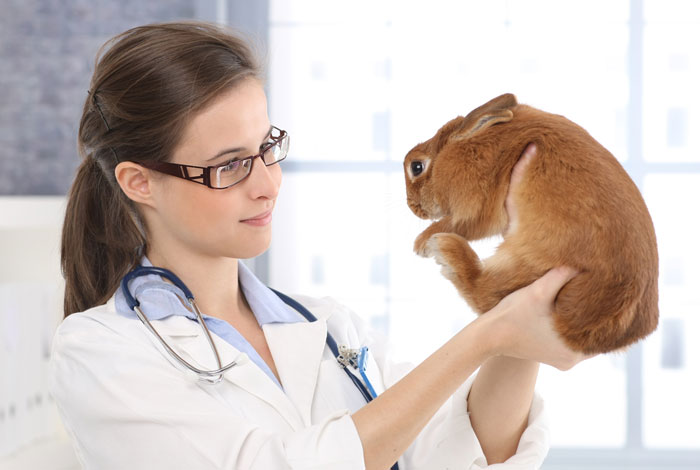
For rabbits
- Calicivirus (also known as rabbit haemorrhagic disease virus): Used as a biological control towards the end of last century, this virus causes internal bleeding and sudden death in rabbits. It only affects the European rabbit – the most common type of pet rabbit – and is spread through direct contact with wild rabbits. It can also spread indirectly from clothing, footwear, feed, other animals and insects. Annual vaccination is the only way to prevent this disease.
Vaccination protocol: The first vaccination can be given from 10-12 weeks of age, followed by an annual vaccination.
- Myxomatosis: Currently, there is no vaccination for this disease in Australia, and there is no known cure. The disease is spread by direct contact with an affected rabbit or by being bitten by fleas or mosquitos that have fed on an affected rabbit. It affects European rabbits most severely. Lumps and puffiness will usually appear around the head and genitals with severe conjunctivitis and possible blindness quickly following. Rabbits become listless, lose their appetite and develop a fever, while secondary infections like pneumonia also develop. Death can occur in as little as 48 hours or up to 14 days.
With no vaccination or cure available, it’s important to protect rabbits against biting parasites that may spread Calicivirus and Myxomatosis. We can treat rabbits for fleas using ADVANTIX, which will also repel flies and mosquitos. Using mosquito netting on rabbit hutches and keeping them indoors at high-risk times, such as dawn and dusk, may also help.
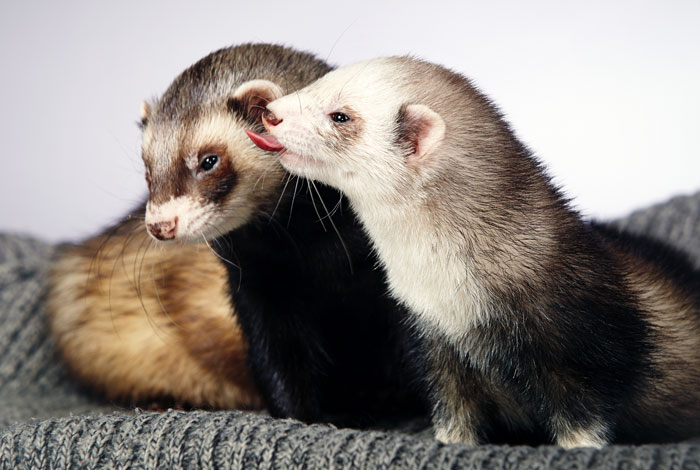
For Ferrets
- Distemper: Ferrets are very susceptible to canine distemper virus, with a 100% death rate once contracted. Symptoms include discharge from eyes and nose, lethargy, high fever, drooling, problems breathing, muscle tremors and seizures. Most ferrets diagnosed with distemper usually need to be put to sleep.
Vaccination protocol: Under 14 weeks: Three boosters are administered three weeks apart, then an annual vaccination should be maintained. Over 14 weeks: Two boosters are given two weeks apart, then an annual vaccination should be administered.

